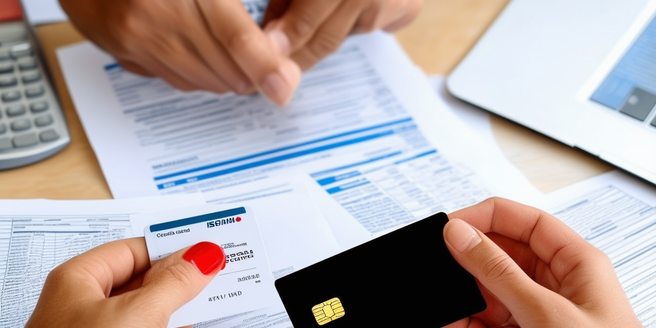
Introduction to Secured Cards
Secured credit cards are types of credit cards that require a cash deposit as collateral for the account. Once the deposit is made, the card can be used just like any other credit card. This deposit reduces the financial risk to the card issuer should you default on your payment. The credit limit on a secured card typically matches the amount of your deposit. They are a great option for individuals with poor or no credit history as they provide an opportunity to build credit. Always remember, though, credit card companies do not treat these accounts any differently from regular credit card accounts.
How Do Secured Card Fees Work?
Secured cards often come with various fees. The initial deposit, while refundable, does not negate the charges associated with maintaining the card. It’s important to remember that these charges can quickly add up and potentially outweigh the benefits of the secured card. Many cards also charge a monthly service fee in addition to the annual fee. There’s an annual fee, which can vary depending on the card issuer. Also, in many instances, if the credit limit is increased the user then owes an increased deposit to the institution. Late payment fees also apply when repayments are not made on time.
Types of Fees Associated With Secured Cards
There are many types of fees that can be associated with secured cards. There’s an annual fee which is a yearly charge to use the card. Besides, there are also bounced check fees if a payment made by check is returned due to insufficient funds in the account. Late payment fees are incurred when the account holder does not make the minimum payment by the due date. Over the limit fees are charged when the account holder goes over their set credit limit. Lastly, there are cash advance fees which are charges for withdrawing money from an ATM.
Comparison of Fees Among Different Secured Cards
Secured card fees vary among different card issuers. The card issuer usually provides information about their fees on their official website. For instance, some secured cards charge a higher annual fee while others levy lower charges. When looking at fees, it is also important to consider other costs such as interest rates and foreign transaction costs. Certain cards charge high fees for late payments, while others may be more forgiving. The key is to compare and understand all the costs before picking a secured card. Reading through the terms and conditions of each secured card under consideration will give a clearer picture.
Tips to Avoid Unnecessary Fees on Secured Cards
To avoid unnecessary charges on secured cards, make payments on time to evade late fees. This not only keeps your balance manageable, but also boosts your credit score. Also, monitor your credit utilization, keeping it below the credit limit to avoid over-limit fees. Always remember, the prudent use of your credit card helps in maintaining a good credit score. Try to pay your balance in full each month to avoid interest charges. Avoid cash advances unless it’s an emergency, these often come with hefty fees. Lastly, always query suspicious charges to ensure no fraudulent activity is taking place.
The True Cost of a Secured Card: Fees & Beyond
While secured cards can be an effective tool to build or rebuild credit, they come at a cost. One of the main things to keep in mind is the interest rate, which can also be quite high. It’s important to meticulously review your agreement before committing. In addition to the deposit, there may be an annual fee, late fees, and other charges. These fees quickly add up and can make secured cards expensive if not managed properly. The real cost comprises of these fees and goes beyond to include the loss in interest earnings on the deposit. Always manage your card responsibly to keep costs at a minimum.
